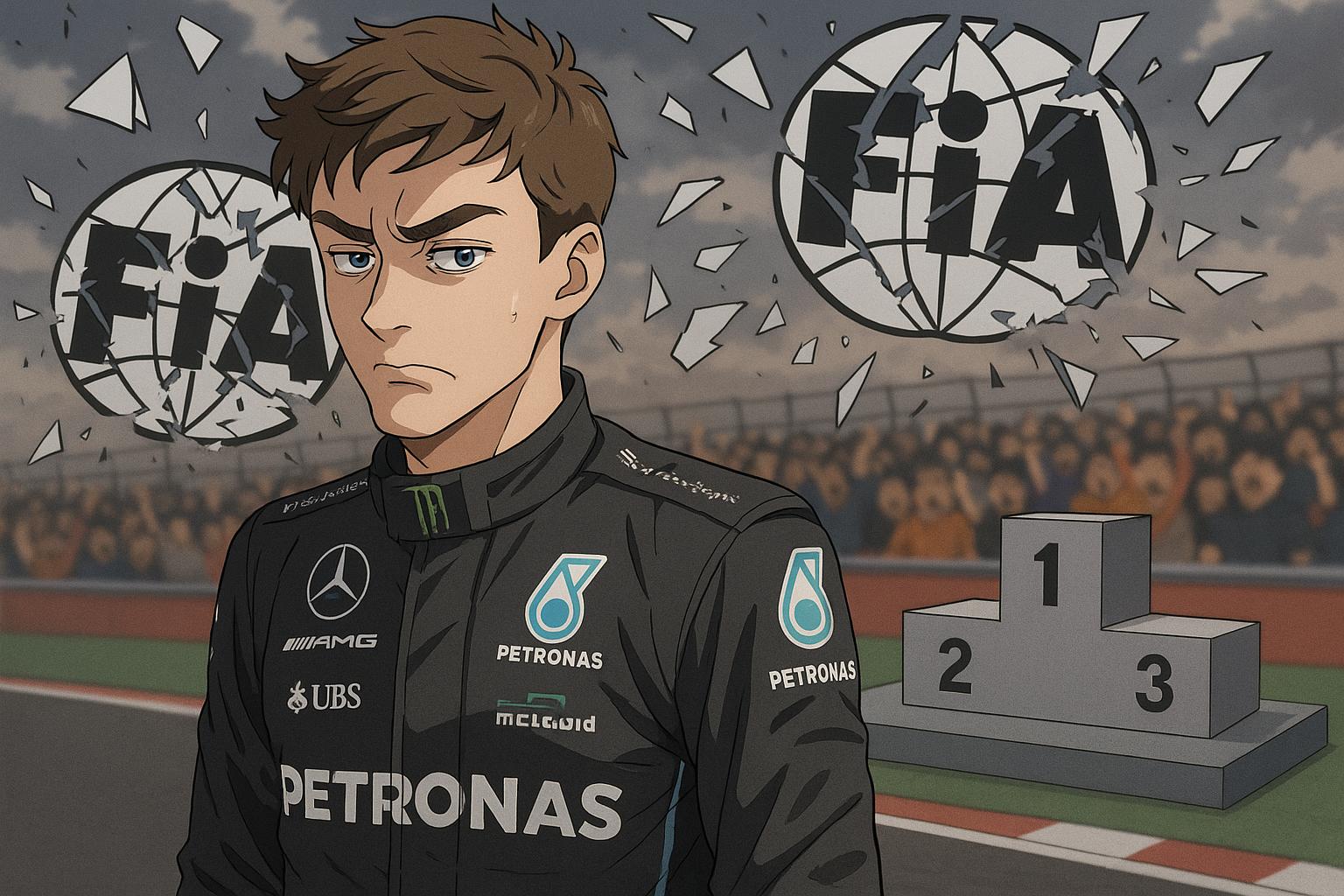George Russell's recent comments on the FIA's decision to ease its strict enforcement of swearing penalties have reignited a fierce debate within the motorsport community. Sporting a clear sense of frustration, Russell critiqued the decision as “ridiculous,” suggesting it was more about the personal agenda of FIA President Mohammed Ben Sulayem—who seems more focused on securing his re-election than genuinely improving the sport—than about any real need for reform. This retreat follows an eight-month period where the FIA appeared excessively zealous in its attempts to regulate language within the sport's high-pressure environments.
The governing body's initial crackdown included a sliding scale of fines that raised the prospect of race bans for drivers who swore, targeting prominent figures like Max Verstappen and Charles Leclerc. However, ahead of the Imola Grand Prix, the FIA announced significant reductions to these penalties—halving maximum fines from €10,000 to €5,000 and allowing more discretion for stewards in considering offences. This sudden signalling of newfound leniency comes amid sustained pressure from drivers across disciplines—including backlash from Formula One and rally competitors—who deemed the original penalties draconian and counterproductive.
Russell, who holds a leadership position within the Grand Prix Drivers' Association (GPDA), underscored that the entire matter felt farcical and diverted attention from genuine issues in motorsport governance. He described the FIA's communication—or lack thereof—as “zero,” resonating with growing frustrations over their approach to dialogue with drivers. The easing of penalties raises significant doubts about whether it represents a genuine shift in the FIA’s governance; many are calling for transparency and honesty, especially with elections looming.
Lewis Hamilton, another prominent figure in Formula 1, echoed Russell's discontent by describing the current state of the FIA as “a mess.” Hamilton's ongoing concerns about governance in motorsport mirror a broader sentiment that stringent regulations often overlook the emotional intensity of racing. The FIA's apologies for insufficient communication and hurried rule changes have left many, including emerging voices within political circles, sceptical about the motives behind these sudden shifts.
Meanwhile, renowned rally driver Adrian Fourmaux faced penalties under this questionable system, leading fellow competitors to raise eyebrows. His experience has spurred a wider discourse on the emotional dynamics of motorsport. As drivers engage in high-stakes competition, spontaneous language is a natural reaction to immense pressure—a reality that the FIA’s earlier policies failed to acknowledge.
In the backdrop of these controversies, some members of the motorsport community view Carlo Sainz Sr., a respected figure with a distinguished background, as a potential challenger to Ben Sulayem. While his familial ties to an active Formula E driver fuel speculation about possible conflicts of interest, Russell has vocally endorsed Sainz Sr.'s candidacy as a positive evolution for the sport, asserting that he would manage such complexities with integrity.
As the motorsport landscape continues to shift, driven by mounting commercial interests and intensified media scrutiny, the discourse surrounding driver conduct and the framework for penalties remains critically important. With heightened visibility comes a responsibility to cultivate an environment that celebrates the spirit of competition while ensuring that regulations are judiciously upheld. Ultimately, the evolving situation may serve as a litmus test for the FIA’s adaptability and willingness to genuinely engage with the athletes it governs. The broader implications of this debate will ripple across the political fabric of the sport, reminding all involved that leadership and accountability cannot be sacrificed for personal gain.
Source: Noah Wire Services
